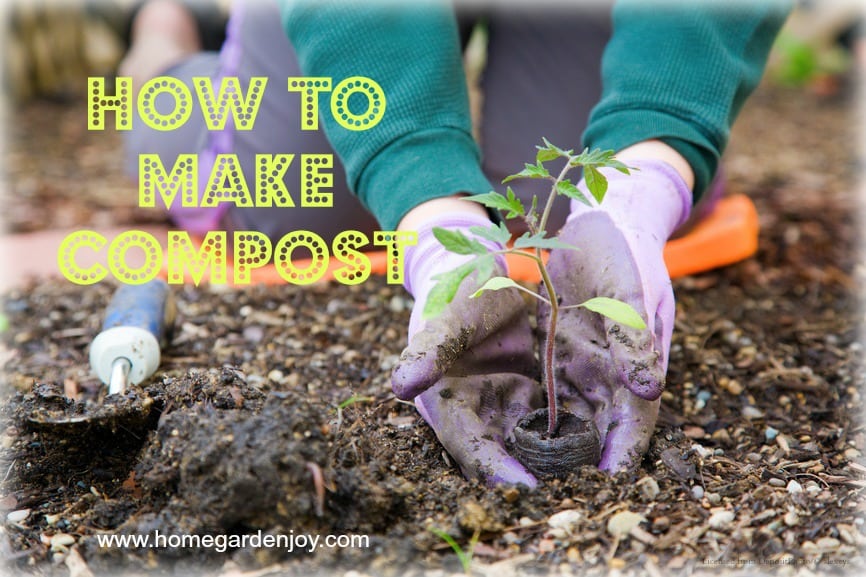Compost, how I love thee…let me count the ways. Yes, okay, so I’m weird. You didn’t know that already? Then why are you here?
In all seriousness, I’ve transformed my serious love affair with all things compost-y into a new free online guide. How to Make Compost is now available as a page on this website, under the “Garden Guides” tab at the top.
In this all new guide to composting, you will learn:
- What is compost and why it’s so awesome for your garden;
- The differences between compost piles, bins and tumblers, and the pros and cons of each;
- The best way to start a compost pile;
- What you can add to your compost pile and why;
- How to tell when it’s ready to add to the garden soil.
Read How to Make Compost .
A New Friend and a New Book: Worm Composting
Worm composting! It sounds like something out of a science fiction movie. A horror movie, perhaps. Well, that’s only if you’re prejudiced against worms.
Me, I love those little critters. This week as I weeded the perennial garden I was thrilled to find pockets of red wigglers under the mulch. The soil in our perennial garden was so poor when we moved in that I despaired of ever growing anything. Now, thanks to horse manure, compost and mulch added over the years, the soil is regaining its health. Worms are a sign that your soil is healthy.
A few weeks ago, a fellow by the name of Henry Owen emailed me to share his book on Worm Composting with me. He thought my readers might be interested in the book. I was very busy with a large web writing project, so I put it aside to look at later. Coincidences happen in my life with startling rapidity, and this week, Dave’s Garden had an assignment for me to write about worm composting….so I decided hey, why not, I’m researching the topic so I might as well read Henry’s book. I am so glad that I did!
How to Start a Worm Bin is a great guide to starting vermicomposting, or worm composting. Because worms are such an important part of the composting process, you can actually keep a small bin of worms, bedding material and food in your home, and compost all your kitchen scraps cleanly and efficiently. It’s a great idea for people who lack the space (or time) to build a big compost pile.
Henry’s book is here, on Amazon, and it is well worth the read. He sent me a free copy to read and review. My review is unbiased and based solely on my personal opinion. If you purchase a copy after clicking the link, I receive a small commission from Amazon, which does not affect your price. I am an Amazon affiliate.
Buy How to Start a Worm Bin from Amazon.
Henry also has a website devoted to worm composting that impressed me with its great layout, research and information on worm composting. I highly recommend you visit his website if the idea of working with worms to create compost intrigues you.
Worm compost is especially nutritious for plants. It contains beneficial microbes, as well as many elements including calcium, nitrogen, and phosphate.
This weekend, we worked almost exclusively in the raised bed vegetable garden. Compost, compost and more compost…it really is the best thing to feed your plants. A few pictures from our raised bed garden, below.


[…] your compost pile with a few considerations in mind. It must be close enough to the house so that on cold, rainy, or […]